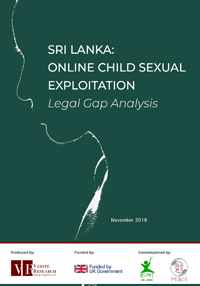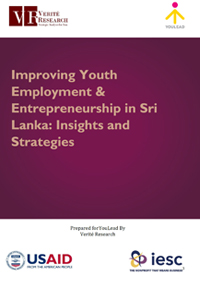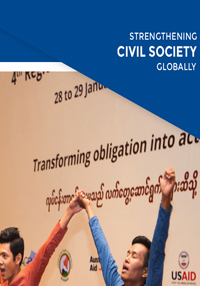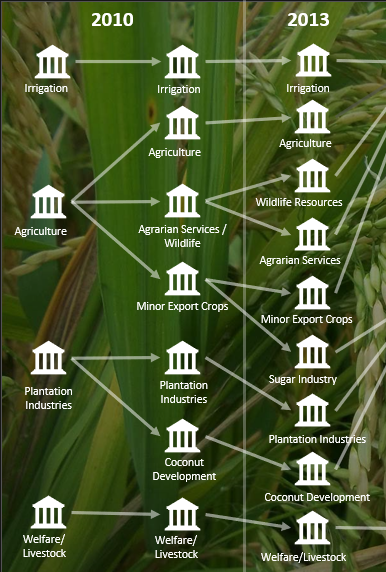This report provides an assessment and analysis of the fiscal, financial and economic assumptions and estimates applied in the formulation of the 2021 Budget.
The study provides a legal gap analysis by examining the legislative and policy framework pertaining to online child sexual exploitation (OCSE) in Sri Lanka. It provides an overview of OCSE globally and in Sri Lanka.
Building on the Youth Labour Market Assessment published by Verite Research in 2018, this report focuses on a series of specific issues that represent key barriers to increasing youth employment and youth employability in Sri Lanka. Given the potential of youth entrepreneurship to serve as a key driver for increasing the labour force participation of youth, including young women, the current report also investigates key challenges and opportunities for increasing youth entrepreneurship in Sri Lanka.
Successful economies have increasingly recognised the importance of improving access to data collected by governments. Accurate, timely and easily accessible data helps private sector growth and results in improved delivery by government. Sri Lanka Customs is the key government agency that collects trade data. Access to timely trade data is vital for firms engaging in international trade to make sound business decisions. It is also the basis on which countries should be formulating their trade policies and assessing their impact.
Sri Lanka is highly dependent on international loans from multilateral and bilateral sources to finance infrastructure development. Multilateral and bilateral borrowing is often favoured by governments such as Sri Lanka because such financing tends to have ‘concessional’ elements, relative to the international financial markets. However, this report finds that the practice of ‘tying’ loans to procurement from contractors in the lending country and resulting cost escalations can significantly erode the concessional or grant element of these loans.
Sri Lanka is highly dependent on international loans from multilateral and bilateral sources to finance infrastructure development. Multilateral and bilateral borrowing is often favoured by governments such as Sri Lanka because such financing tends to have ‘concessional’ elements, relative to the international financial markets. However, this report finds that the practice of ‘tying’ loans to procurement from contractors in the lending country and resulting cost escalations can significantly erode the concessional or grant element of these loans.
The Civil Society Organization Sustainability Index (CSOSI) assesses the sustainability of the CSO sector across several countries in different regions around the world. Since its inception in 1997, it has expanded from covering 18 countries in the Europe and Eurasia Region, to covering a total of 73 countries in 2019, in regions including the Middle East, sub-Saharan Africa and Asia
Ministries are the overarching bodies that house relevant government bodies such as departments and authorities in charge of a particular subject area. They are responsible for the formulation and approval of national level policies and strategies in their assigned sectors (such as health, education, and agriculture), coordinating the institutions under their purview to implement the approved policies and strategies, and monitoring and evaluating their performance. Therefore, ministries—and by extension ministers—are vital to determining the institutional effectiveness and efficiency of service delivery by the public sector.
Ethno-religious violence in Sri Lanka is a chronic and systemic problem that has continued despite successive changes in government. This study examines the key trends of incidents of violence faced by minority Christian, Muslim and Hindu groups in Sri Lanka between 2015 and 2019
Sri Lankan youth due to an extended period of unemployment face a lower possibility in future employment and a reduced earning capacity. As a solution, this paper aims to identify an efficient search method. Emphasis is placed on social contacts, given its popularity as a search method. Social contacts prove inefficient- leading to a 10.0% reduction in unemployment duration with a wage discount of 7.1%. Also, social contacts create a form of stickiness that increases dependency on social contacts and a reluctance to choose other, more efficient search methods in the future. The popularity, inefficiency and stickiness of social contacts are speculated as the probable cause for a large pool of youth to be unemployed over an extended period. As an alternative to social contacts, internet job search proves to be a more efficient search method reducing unemployment duration by 21.6% with a wage premium of 14.3%.








